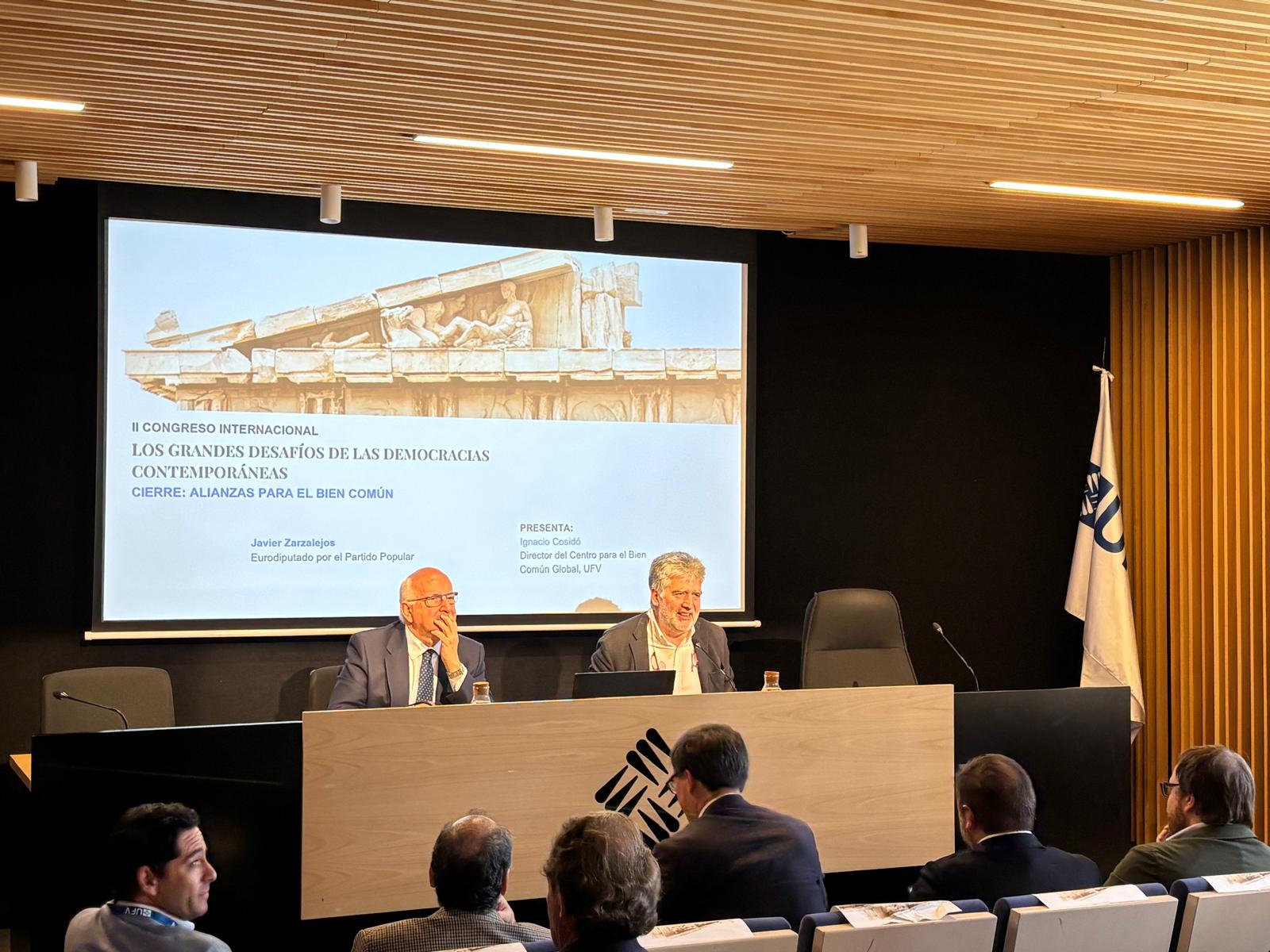JAVIER ZARZALEJOS CALLS FOR A DETERMINED EUROPE FAITHFUL TO ITS VALUES AT THE UFV INTERNATIONAL CONGRESS ON DEMOCRATIC RENEWAL

On April 23, the Francisco de Vitoria University (UFV) hosted an International Congress focused on one of the most pressing challenges for today’s democracies: democratic renewal. The event, organized in collaboration with Ibero-American universities and other national academic institutions, brought together experts from various countries to reflect on the ethical, political, and institutional foundations of a healthy democracy.
During the closing session, titled “Alliances for the Common Good,” MEP Javier Zarzalejos delivered a speech in which he warned of current threats to democratic quality in Europe and called for clear political leadership to confront global challenges.
“We need to move toward institutional and democratic consolidation, and that means we must return to a clear democratic standard for all Member States,” Zarzalejos stated. He warned that “tensions and illiberal shifts are emerging that go far beyond the usual suspects, which used to be Poland and Hungary—now, only Hungary remains.”
Zarzalejos urged reinforcement of the ethical foundations of European democracies: “We need to give our democracies axiological content—not reduce them to strictly procedural systems, but identify the core values that must be upheld.” In this context, he cautioned against the growing threat of anti-parliamentary rhetoric from both the left and right: “We must confront the crisis posed by those on the left and the right who are reviving the worst anti-parliamentary traditions in European history, who denigrate institutions, discredit politics beyond the politicians, and seek easy advantage.”
On the EU’s geopolitical role, Zarzalejos emphasized that “Europe’s rise on the international stage will undoubtedly require the much-discussed rearmament,” though he acknowledged that “it’s difficult to imagine Europe being detached from the United States,” noting that “80% of all defense and military spending by the countries goes to the United States.”
Regarding the need to advance strategic alliances, he proposed that “instruments like Mercosur should serve as a guiding principle for the best of what the European Union can offer in its relations with other countries.”
During his address, Zarzalejos made a direct call to action: “The first step is to state something as simple as the analysis phase is over. Europe already knows exactly where its problems lie. So the first thing Europe must decide is whether or not it is going to decide.” With an explicit reference to Ortega y Gasset, he issued a clear exhortation: “Europeans, to the task!”
Zarzalejos insisted on the need to “seek competitiveness, pursue innovation, and correct the course of a regulatory model that must now incorporate past experience,” warning that “the alternative is a Balkanized Europe, made up of national units increasingly incapable of facing global challenges.”
He also defended the role of the European Union as a barrier against democratic decline: “The European Union remains a key bulwark, at the very least, against the worst illiberal temptations,” though he expressed concern about potential electoral outcomes in countries such as Germany, France, or Spain.
“The time has come for adult politics. The time has come for Europe to dust off the best of its political tradition—not just to resist, but to build. Not only to avoid losing, but to win,” he concluded. He closed with a forward-looking reflection: “We will have to reinvent the European Union as we have done before, and from there, we will navigate a complex world—one that will not end tomorrow.”
